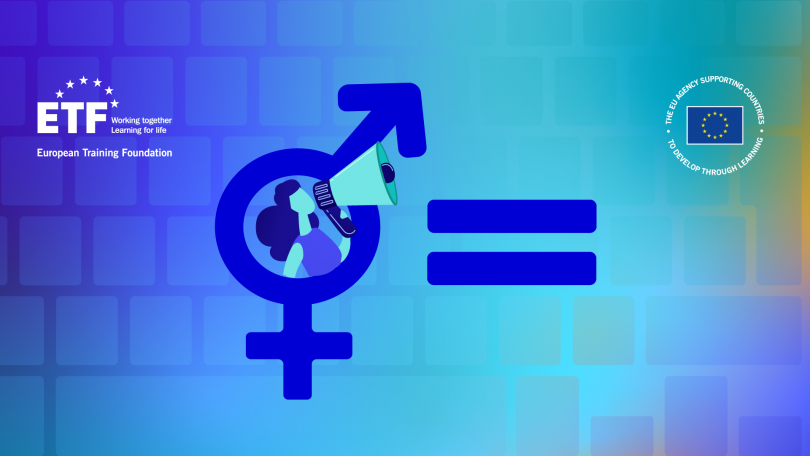
A call to action on International Women’s Day
Progress in gender equality has been undermined by the Covid-19 pandemic.
“We need a reflection on COVID-19 within a gender perspective because its impact has not been gender neutral”, said Sandra Ribeiro in a recent ETF Facebook Live discussion. Ms Ribeiro described how the Portuguese Presidency of the Council of the European Union is seeking to address structural gender inequalities which contributed to the unequal effect on women during the crisis.
How have women been affected?
Women have been at the frontline tackling the pandemic. In the EU, 76% of healthcare and social-care workers and 86% of personal care workers in health services are women. Women are also overrepresented in labour market sectors which suffered the most from the pandemic (retail, hospitality, care and domestic work) as their work could not be done remotely. At the same time lockdowns have impacted women’s work life balance the world over with women taking on the greater responsibility of work and family duties and care. And yet despite all this, the European Commission’s 2021 report on gender equality in the EU highlights that women are incredibly underrepresented in COVID-19 decision-making bodies.
What is the EU doing?
Gender equality has never been so high up on the EU's political agenda, and the European Commission has made significant efforts to implement the Gender Equality Strategy, adopted one year ago to ensure a gender-responsive recovery in the EU.
In the Digital Education Action Plan and Updated Skills Agenda, the Commission announced a range of actions ensuring that girls and young women are equally present in ICT studies and digital skills development. Moreover, in the Action Plan to implement the European Pillar of Social Rights gender equality is at its core and establishes, amongst others, ambitious targets for women's participation in the labour market and the provision of early childcare.
The Commission also strengthened gender equality outside of the EU by presenting, in November 2020, the new Gender Action Plan (GAP III) for 2021-2025, an ambitious agenda for gender equality and women's empowerment in EU external action.
What is the ETF doing?
Social inclusion and gender equality are fundamental transversal issues within ETF’s work supporting human capital development within our partner countries. The ETF’s work is devised and delivered in the context of the European Union’s policies and the EU's external relations priorities in support of the UN's Sustainable Development Goals, for which the empowerment of women and girls is a key element and a key contributor to economic growth and development.
The ETF’s operations in developing countries are also guided by the European Consensus on Development, which is a commitment by the EU and its Member States to support inclusive lifelong learning and equitable quality education in developing countries. Special attention is paid to education and training opportunities for girls and women. Drawing upon the EU’s Digital Education and Action Plan and the EU Skills Agenda focus is given to developing digital literacy and skills as an important tool to empower people to promote social inclusion and to facilitate participation in democratic governance and the digital economy.
More specifically, the ETF undertakes an annual data compilation (KIESE) exercise with our partner countries to inform our activities. The most recent exercise, for instance, highlighted the higher participation of women in education, especially at tertiary level, but that women remain largely under-represented in Science, Technology, Engineering and Mathematics (STEM).
Additionally, during the last decade, the ETF has actively supported women entrepreneurs and the development of the relevant skills and competences. The reports provide policy recommendations for institutions and decision makers on how to address the women’s entrepreneurship agenda in national and regional contexts.
Did you like this article? If you would like to be notified when new content like this is published, subscribe to receive our email alerts.